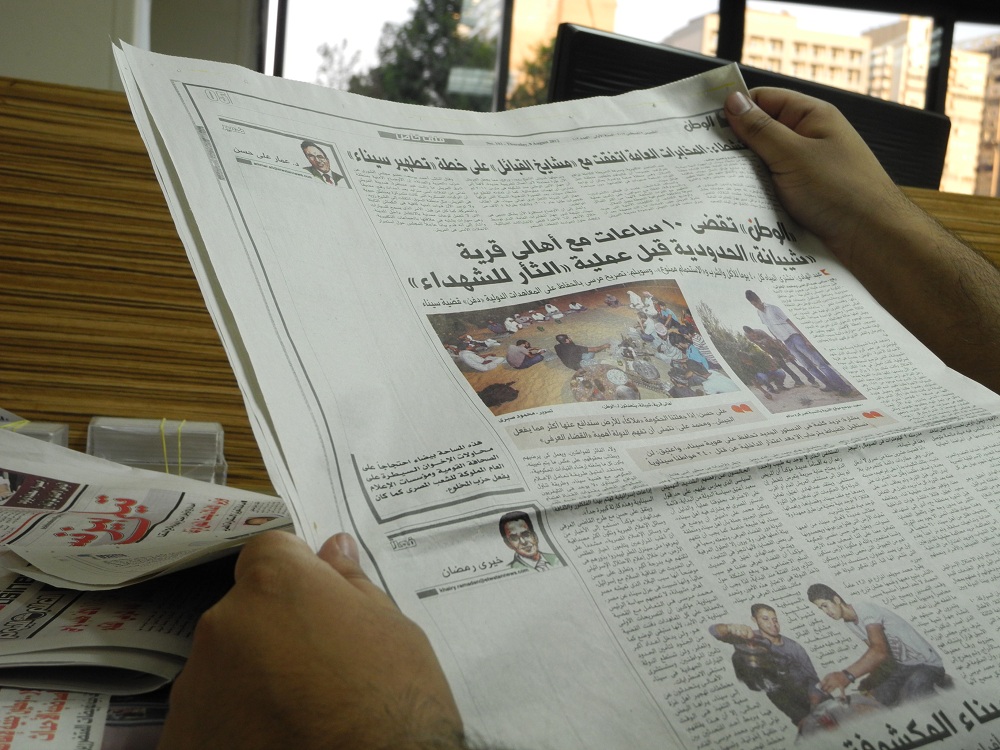In the eyes of the informed layman, Egypt’s banking sector seems to have been cooking something big in 2007. First up is the decision to sell a majority stake in Banque Du Caire, followed by a possible merger between the Commercial International Bank (CIB) and the Arab African International Bank (AAIB). Just off the controversy block, 2007 also saw the sale of Al-Watany Bank of Egypt finalized as well as the feted launch of the Ahli United Bank (AUB) Egypt. In the banking spotlight this year was the somewhat abrupt decision to sell 80 percent of Banque Du Caire to a yet-to-be-named investor. Fifteen percent of shares will be made public, which leaves 5 percent to be offered to employees. The reactions have been loud and conflicting. The decision to privatize the bank sparked controversy from both opposition parties and the public in fear of selling the bank to a foreign entity that could afford the staggering LE 12-15 billion estimated sale value. The pending sale process also fueled debate in the press, which accused the government of gratuitously selling Egyptian assets to foreign institutions, putting public welfare at risk. The government justified the sale by outlining the bank’s non-performing loans that represent around 73 percent of gross loans. According to reports, the deficit of Banque Du Caire hovers between LE 12 to LE 15 billion. The government claims its only option was to sell the bank as merging it with possible candidate Banque Misr would have been too costly (a whopping LE 20 billion).Still, the government was accused of trying to bankrupt the public sector so that it could benefit from the sale of the country’s crown jewels for far less than their actual worth. Banque Du Caire is Egypt’s third largest state-owned bank that currently captures a 6 percent market share by assets and deposits, more than 200 branches, some two million customers, an ATM network as well as a developed IT infrastructure. Amid growing public dismay, the government amended its decision and announced offering a 67 percent stake in the bank, 28 percent in an initial public offering on the Egyptian stock exchange, and the remaining five percent to employees. The government plans to auction the bank off in an international bid in March or April of 2008.The news of the sale leaves the National Bank of Egypt and Banque Misr as the last two major state-owned banks, leaving people to wonder who’s next on the government’s privatization spree.With talks of selling Banque Du Caire becoming a distant memory, escalating market talk and speculations of an imminent merger between CIB and the AAIB made another splash. The two lenders finally broke their silence and announced they agreed to conduct due diligence that could lead to a merger, exchanging confidential information on an exclusive basis last October. This step usually precedes a move to combine operations, yet no due diligence was performed, nor have there been any agreements for further mutual activities. Both banks are tight-lipped on the merger; however, CIB Chairman Hisham Ezz Al-Arab recently announced that the bank would not go through with the transaction unless there were visible synergies and positive value creation for its shareholders.Experts estimate that the objective of the merger is to create a national champion in the Egyptian banking sector. If the transaction goes through, the new entity would hold a market share of 7-8 percent in loans and deposits, creating Egypt’s third largest private bank. Another high-profile banking sale finally came to an end in 2007 when National Bank of Kuwait (NBK) won in August a bid to acquire a 51 percent stake in Al-Watany Bank of Egypt for $522 million. NBK offered LE 77.01 ($11.23) a share, valuing the Egyptian lender at about $1.02 billion. The price was a 39 percent premium to the bank’s trading price on the day of the sale, surpassing expectations in the Egyptian stock market. NBK later increased its stake in the bank and it now holds 96.04 percent of Al-Watany Bank shares after buying most of them in October at the same price of LE 77.01 per share.NBK beat rivals including Commercial Bank of Kuwait and Greece’s EFG Eurobank. The bidding war was strong, as Al-Watany Bank was one of the few remaining acquisition opportunities for foreign banks that wished to tap the potential of the Egyptian market, especially after the Central Bank of Egypt rejected permission to establish new banks. Banking authorities aim to clean up and consolidate the country’s banking sector in the hopes that it will become more efficient and attract more than its current 10 percent of the population.The newest face on Egypt’s banking sector this year was AUB Egypt, which made its official debut in late May. The Bahrain-based bank bought an 89.3 percent stake of the bank for approximately LE 1.6 billion, representing LE 37 per share. Still in the works for the bank’s officials are plans to up that stake to 100 percent in the near future.Just off the banking scene, the UAE’s Dubai Ports World (DP World) acquired this year a $670 million (LE 3.7 billion), 90 percent stake in the Egyptian Container Handling Company, operator of Ain Sokhna Port. The port, the closest sea terminal to Cairo and located within the North-West Suez Economic Zone, is connected to Cairo by a new six-lane highway and has rail links to the rest of the nation.

